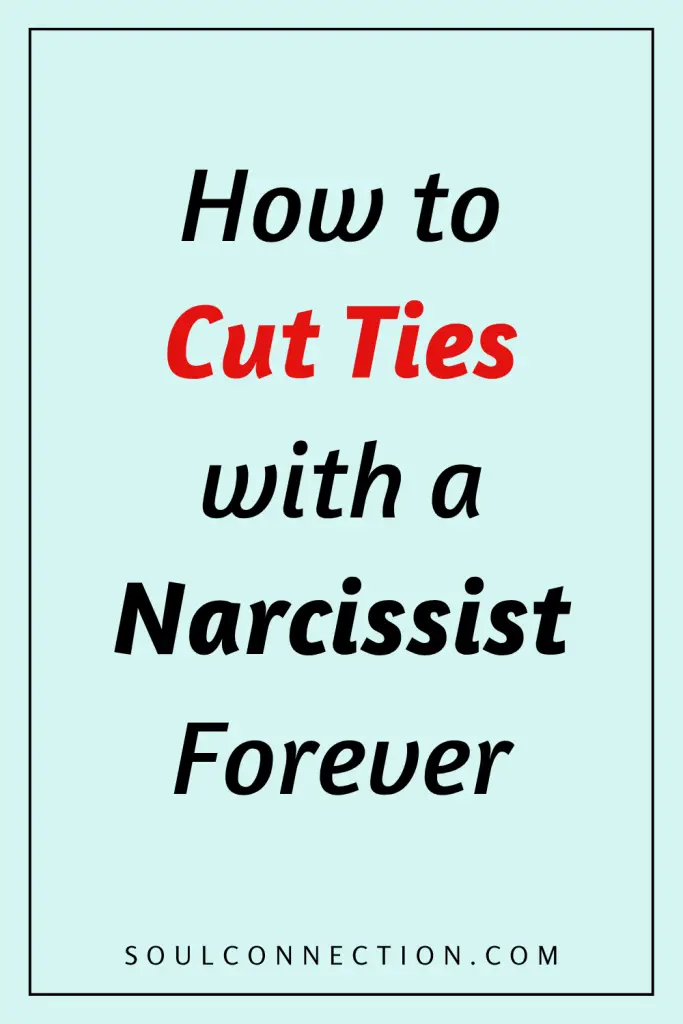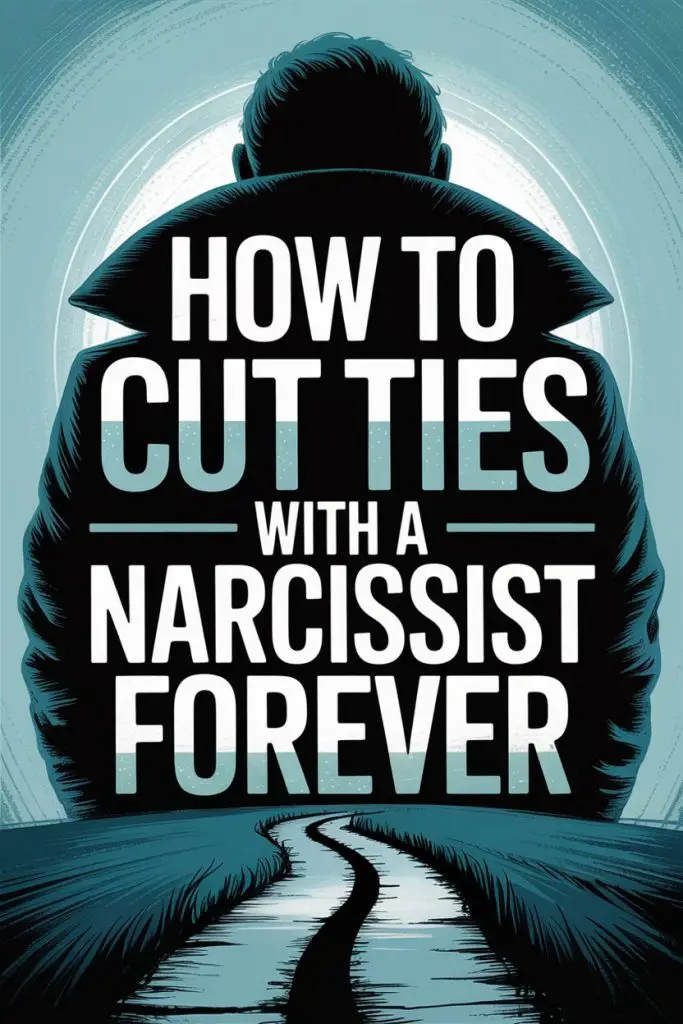Cutting ties with a narcissist doesn’t land on anyone’s bucket list. It’s more like finding a mouse in your pantry: you’d rather not deal with it, but eventually, you’re the one left holding the broom.
If your life’s been hijacked by someone whose ego is so big it needs its own postcode, you’ve probably fantasized about escaping for good.
Good news: this is your map out.
Spotting the Exit Sign: Accepting They Won’t Change
If you’re still clinging to the hope your narcissist will wake up one morning with self-awareness, empathy, and the sudden urge to apologize, it’s time to put that fantasy in the recycling bin.
Blunt, but true: narcissists don’t transform because you loved them harder, read them self-help books, or forwarded them inspirational memes.
Change happens when there’s genuine remorse and a desire to do better. For the garden-variety narcissist, that’s about as likely as finding a unicorn at the local café. Recognizing this isn’t cynical—it’s self-preservation.
Rewriting the Script: Why Guilt is the Trap
Narcissists are Olympic-level guilt trippers. If you try to leave, expect a dramatic monologue: “After all I’ve done for you!” (Sure, if you count making you feel like a doormat.)
Guilt is their secret weapon, and it works because you’re human.
Here’s the trick: guilt is not a red light that means you have to stop. It’s just a sign that you care. Caring is good—but not enough reason to stick around and be someone’s emotional chew toy.
Distinguishing between actual wrongdoing and feeling bad for having boundaries is step one in your escape plan.
Quietly Planning Your Getaway
Announcing your exit to a narcissist is about as wise as poking a wasp’s nest with a stick. Instead, work quietly.
Gather your support system. This could mean reaching out to old friends, a therapist, or your dog (who, incidentally, never gaslights you).
Secure important documents. Change passwords. Remove sentimental items or cherished possessions you’d hate to lose in a messy split.
If you share finances or living space, get practical advice—think of it as disaster preparedness, but for your heart.
Anyone who’s tried to leave a narcissist can tell you: drama is coming. Quiet prep minimizes the fallout.
Drawing the Line: The Art of No Contact
No contact is the holy grail for dealing with narcissists. It sounds simple. It’s not.
Block their number, unfriend, unfollow, mute, delete—do what you have to do. Expect a flurry of attempts: dramatic texts, desperate voicemails, cryptic Facebook posts. This is bait. Don’t bite.
If you must have contact (co-parenting, shared business), keep it strictly business. Channel your inner customer service rep: polite, brief, and never rising to the drama. Grey rocking, as the cool kids call it.
When Ghosting Isn’t an Option
Maybe you share kids, a workplace, or a community group. Going full ghost just isn’t realistic. Here’s the play: strict boundaries.
Keep conversations factual and short. Don’t share personal feelings or plans. Imagine you’re discussing the weather with your least favorite colleague—civil, but not an ounce of warmth.
Any attempts at manipulation or emotional pleas? Revert to the script: “I’m not discussing that.” Rinse, repeat, and power-walk away.
Bracing for the Hoover
Like a vacuum cleaner with trust issues, narcissists love to suck you back in. They might promise they’ve changed, send you gifts, or suddenly remember your birthday after five years of forgetting.
This isn’t love. It’s manipulation with a bow on top.
Resist the urge to reply, even if it’s just to say, “Leave me alone.” Any response is a jackpot for them. Silence is your shield.
The Support Squad: Gathering Allies and Sanity-Savers
Isolation is a narcissist’s best friend. Reconnecting with people who see things clearly (and don’t need a mirror to do it) is essential.
Find a friend who’ll tell you the truth, not just what you want to hear. Join a support group—online or in person—where people get it.
A therapist or counselor with experience in narcissistic abuse can help you rewire the parts of your brain that still think you’re the problem.
Sanity comes from perspective, and perspective comes from other humans.
Facing the Fallout: Grieving the Loss
Cutting off a narcissist can feel like amputation—painful, but necessary to save the rest of you. Even though your logical brain knows you’re better off, your heart will have a few things to say.
Grieve what you hoped for, the relationship you deserved, and the version of them you wanted to believe in. Allow sadness, anger, even nostalgia.
These feelings aren’t a sign you made the wrong choice—they’re proof you have a working soul.
Untangling from the Web: Letting Go of the Fantasy
Everyone leaves a narcissist with a backpack full of “what ifs.”
What if they finally realize what they lost? What if you bump into them and they’ve become a changed person? It’s the emotional equivalent of waiting for your ex to return your favorite hoodie.
Acceptance is messy, but liberating. Their lack of remorse or transformation isn’t your failure—it’s just…them. The future is brighter without their shadow looming over your happiness.
Reclaiming Your Space and Identity
Once the narcissist is out of the picture, you might notice things feel strangely quiet. No drama, no eggshells, no frantic apologizing for things you didn’t do.
This is the part where you start rebuilding. Rediscover the music, hobbies, and friendships that got lost in their drama tornado.
Try something new just because it makes you happy—not because it wins someone else’s approval.
Bit by bit, you’ll remember who you were before you had to shrink to fit someone else’s ego.
Keeping the Door Shut
The temptation to peek back is real. Maybe you hear they’re talking about you, or your phone pings with an unknown number. Close the door, anyway.
Forgive yourself for any slip-ups, but resolve not to make a habit of it. Every time you say no to chaos, you say yes to peace. And isn’t that what you wanted all along?
Freedom Looks Good on You
It’s not just about cutting ties with a narcissist—it’s about reclaiming your life from anyone who thrives on control and manipulation. The journey isn’t neat or painless, but it is possible.
You’ll stumble. You’ll have days when you miss the familiar noise, even if it was toxic. Stick with it.
The quiet, peaceful days? They’re your reward for finally putting yourself first.
And if the narcissist ever claims you’ll never find someone better, remind yourself: you already have. It’s you.


